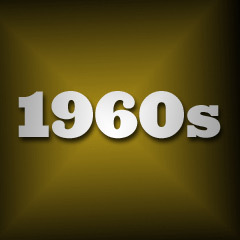
|
![]()
Greatest Films of the 1960s
1960 | 1961 | 1962 | 1963 | 1964 | 1965 | 1966 | 1967 | 1968 | 1969
Title Screen Film Genre(s), Title, Year, (Country), Length, Director, Description 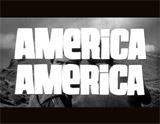
America America (1963) (aka The Anatolian Smile), 174 minutes, D: Elia Kazan
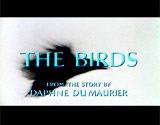

The Birds (1963), 119 minutes, D: Alfred Hitchcock
This modern Hitchcock thriller/masterpiece - his first film with Universal Studios, was loosely based upon a shocking short story by Daphne Du Maurier. It was an apocalyptic story about a northern California coastal town (Bodega Bay) filled with an onslaught of seemingly unexplained, arbitrary and chaotic attacks of ordinary birds - not birds of prey. Ungrammatical advertising campaigns emphasized: "The Birds Is Coming." The dark film hinted that the bird attacks were punishment for the failings of the relationships between the main characters. This Technicolor feature came after Psycho (1960) - another film filled with 'bird' references. The film's technical wizardry was extraordinary, especially in the film's closing scene (a complex, trick composite shot) - the special visual effects of Ub Iwerks were nominated for an Academy Award (the film's sole nomination), but the Oscar was lost to Cleopatra (1963). Hundreds of birds (gulls, ravens, and crows) were trained for use in some of the scenes, while mechanical birds and animations were employed for others. The film's non-existent musical score was replaced by an electronic soundtrack (including simulated bird cries and wing-flaps), with Hitchcock's favorite composer Bernard Herrmann serving as a sound consultant. Hitchcock introduced a 'fascinating new personality' for the film - his unknown successor to Grace Kelly - a cool, blonde professional model named 'Tippi' Hedren (the mother of Melanie Griffith), in her film debut in a leading role. The story opened in San Francisco, where the two main characters met and flirted in a bird shop: wealthy socialite Melanie Daniels (Tippi Hedren) and a bachelor-lawyer Mitch Brenner (Rod Taylor). Melanie decided to impulsively drive to his family's home north of SF in Bodega Bay, where he often spent weekends with his mother Lydia (Jessica Tandy) and his 11 year-old sister Cathy (Veronica Cartwright). It was also the home of Mitch's ex-girlfriend Annie Hayworth (Suzanne Pleschette), the local school teacher. Melanie ominously presented Mitch during her surprise visit with a pair of lovebirds in a cage, as birds were already flocking and amassing in the skies and causing problems (i.e., seagulls attacked celebrants during Cathy's outdoor birthday party). Lethal bird attacks multiplied - at farmer Dan Fawcett's home, at a service gas station (causing a massive fire), above the town's Tides Restaurant, and at the school's playground (on a jungle-gym) where the children were chased down the road as they fled from a swarming mass of birds, and Annie was later pecked to death. In the finale, the birds attacked the Brenner family (with Melanie) in their home - entering through the chimney and gathering in the attic, and seriously wounding Melanie. They were forced to carefully and stealthfully drive off from their home - leaving the deserted town that had been overtaken by thousands of birds.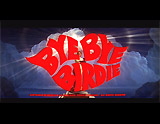

Bye Bye Birdie (1963), 112 minutes, D: George Sidney
The Broadway hit show of 1960, Bye Bye Birdie, was adapted for the screen by Irving Brecher and directed by George Sidney - it was the first Broadway musical to include rock songs. In its lampooning or parody of hip-gyrating rock-and-roll idol Elvis "The King" Presley (who was drafted into the Army in 1958), it told about an Elvis Presley-styled pop star named Conrad Birdie (Jesse Pearson). Conrad was a beer-drinking hillbilly who caused swooning chaos among teens upon his arrival in the midwestern town of Sweet Apple, Ohio. In the star-making opening credits sequence, Ann-Margret (as high-schooler Kim, in her film debut) flipped her skirt and tossed her hair as she sang the title song before a blue-screen and in a wind tunnel. Dick Van Dyke reprised his role in the film as a talented chemist and struggling song-writer Albert Peterson (he sang the memorable "Put on a Happy Face" to his secretary-fiancee Rosie DeLeon (Janet Leigh)), who had a manipulative and domineering mother, Mama Mae Peterson (Maureen Stapleton). 22 year-old Ann-Margret appeared as nubile 16 year-old vibrant Ohio high-schooler Kim McAfee - as a member of Birdie's fan club, she was the lucky one chosen to receive a farewell kiss ("One Last Kiss") from the rock idol (just before he was drafted into the military) on the popular weekly TV variety program, The Ed Sullivan Show (although fictitious in the film), to be partly aired live from Ohio. Throughout the film, Albert had to manipulate his way around Kim's protective father Harry McAfee (Paul Lynde), and restrictions imposed by the TV show. In the conclusion, Albert and Rosie were able to slip an amphetamine into the milk glass of an Russian ballet conductor (to speed up the next-to-last ballet performance on the show), to allow them time for their Birdie finale. However, Kim's jealous boyfriend Hugo Peabody (singing idol Bobby Rydell) wrecked the scene by punching Birdie in the face, before the singer was able to plant "one last kiss" on Kim before singing Albert's song. Also memorable were these two numbers: the split-screen, gossipy musical telephone sequence (with live action and animation) titled "The Telephone Hour," and Kim's father Harry singing "Kids" in the family kitchen with the familiar lyric: "What's the matter with kids today?"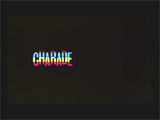




Charade (1963), 113 minutes, D: Stanley Donen
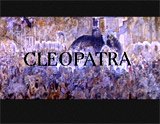

Cleopatra (1963), 243 minutes, D: Joseph L. Mankiewicz
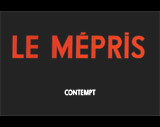
Contempt (1963, Fr./It.) (aka Le Mépris, or Il Disprezzo), 103 minutes, D: Jean-Luc Godard
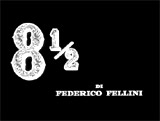

8 1/2 (1963, It./Fr.), 135 minutes, D: Federico Fellini
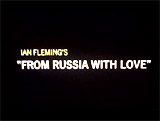



From Russia With Love (1963, UK), 110 minutes, D: Terence Young


The Great Escape (1963), 169 minutes, D: John Sturges
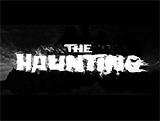

The Haunting (1963, UK/US), 112 minutes, D: Robert Wise
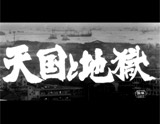

High and Low (1963, Jp.) (aka Tengoku to jigoku) (Heaven and Hell), 143 minutes, D: Akira Kurosawa
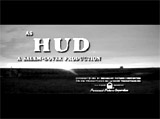

Hud (1963), 112 minutes, D: Martin Ritt
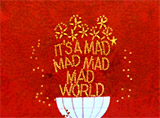

It's a Mad, Mad, Mad, Mad World (1963), 192 minutes, D: Stanley Kramer
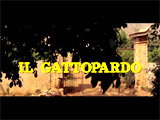

The Leopard (1963, It./Fr.) (aka Il Gattopardo), 187 minutes, D: Luchino Visconti
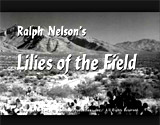

Lilies of the Field (1963), 94 minutes, D: Ralph Nelson


The Nutty Professor (1963), 107 minutes, D: Jerry Lewis
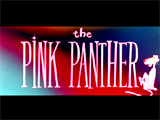

The Pink Panther (1963), 113 minutes, D: Blake Edwards
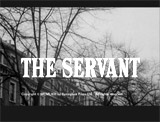

The Servant (1963, UK), 112 minutes, D: Joseph Losey


Shock Corridor (1963), 101 minutes, D: Samuel Fuller



This Sporting Life (1963, UK), 134 minutes, D: Lindsay Anderson
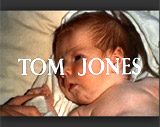


Tom Jones (1963, UK), 129 minutes, D: Tony Richardson
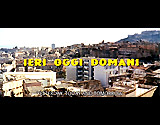

Yesterday, Today and Tomorrow (1963, It.) (aka Leri, Oggi, Domani), 119 minutes, D: Vittorio De Sica